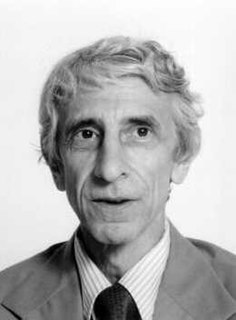 W
WLloyd Chudley Alexander was an American author of more than forty books, primarily fantasy novels for children and young adults. Over his seven-decade career, Alexander wrote 48 books, and his work has been translated into 20 languages. His most famous work is The Chronicles of Prydain, a series of five high fantasy novels whose conclusion, The High King, was awarded the 1969 Newbery Medal for excellence in American children's literature. He won U.S. National Book Awards in 1971 and 1982.
 W
WWilliam Blake was an English poet, painter, and printmaker. Largely unrecognised during his lifetime, Blake is now considered a seminal figure in the history of the poetry and visual arts of the Romantic Age. What he called his prophetic works were said by 20th-century critic Northrop Frye to form "what is in proportion to its merits the least read body of poetry in the English language". His visual artistry led 21st-century critic Jonathan Jones to proclaim him "far and away the greatest artist Britain has ever produced". In 2002, Blake was placed at number 38 in the BBC's poll of the 100 Greatest Britons. While he lived in London his entire life, except for three years spent in Felpham, he produced a diverse and symbolically rich œuvre, which embraced the imagination as "the body of God" or "human existence itself".
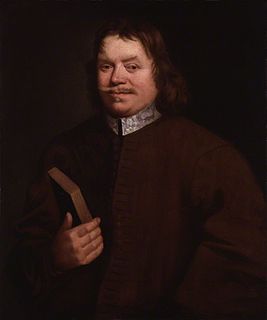 W
WJohn Bunyan was an English writer and Puritan preacher best remembered as the author of the Christian allegory The Pilgrim's Progress. In addition to The Pilgrim's Progress, Bunyan wrote nearly sixty titles, many of them expanded sermons.
 W
WRobert William Chambers was an American artist and fiction writer, best known for his book of short stories titled The King in Yellow, published in 1895.
 W
WSir Arthur Ignatius Conan Doyle was a British writer and medical doctor. He created the character Sherlock Holmes in 1887 for A Study in Scarlet, the first of four novels and fifty-six short stories about Holmes and Dr. Watson. The Sherlock Holmes stories are generally considered milestones in the field of crime fiction.
 W
WEdward John Moreton Drax Plunkett, 18th Baron of Dunsany, was an Anglo-Irish writer and dramatist; his work, mostly in the fantasy genre, was published under the name Lord Dunsany. More than ninety books of his work were published in his lifetime, and both original work and compilations have continued to appear. Dunsany's œuvre includes many hundreds of published short stories, as well as plays, novels and essays. He achieved great fame and success with his early short stories and plays, and during the 1910s was considered one of the greatest living writers of the English-speaking world; he is today best known for his 1924 fantasy novel The King of Elfland's Daughter and The Gods of Pegāna, wherein he devised his own fictional pantheon and laid the groundwork for the fantasy genre. He was the inventor of an asymmetric version of chess called Dunsany's chess.
 W
WMichael Andreas Helmuth Ende was a German writer of fantasy and children's fiction. He is best known for his epic fantasy The Neverending Story; other famous works include Momo and Jim Button and Luke the Engine Driver. His works have been translated into more than 40 languages, sold more than 35 million copies, and adapted as motion pictures, stage plays, operas and audio books. Ende is one of the most popular and famous German authors of the 20th century, mostly due to the enormous success of his children's fiction. He was not strictly a children's writer, however, as he wrote books for adults too. Ende's writing could be described as a surreal mixture of reality and fantasy.
 W
WAbul-Qâsem Ferdowsi Tusi, or just Ferdowsi was a Persian poet and the author of Shahnameh, which is one of the world's longest epic poems created by a single poet, and the national epic of Greater Iran. Ferdowsi is celebrated as the most influential figure in Persian literature and one of the greatest in the history of literature.
 W
WNikolai Vasilievich Gogol was a Russian novelist, short story writer and playwright of Ukrainian origin.
 W
WSir Henry Rider Haggard was an English writer of adventure fiction set in exotic locations, predominantly Africa, and a pioneer of the lost world literary genre. He was also involved in agricultural reform throughout the British Empire. His stories, situated at the lighter end of Victorian literature, continue to be popular and influential.
 W
WErnst Theodor Amadeus Hoffmann was a German Romantic author of fantasy and Gothic horror, a jurist, composer, music critic and artist. His stories form the basis of Jacques Offenbach's opera The Tales of Hoffmann, in which Hoffmann appears as the hero. He is also the author of the novella The Nutcracker and the Mouse King, on which Pyotr Ilyich Tchaikovsky's ballet The Nutcracker is based. The ballet Coppélia is based on two other stories that Hoffmann wrote, while Schumann's Kreisleriana is based on Hoffmann's character Johannes Kreisler.
 W
WRobert Ervin Howard was an American author who wrote pulp fiction in a diverse range of genres. He is well known for his character Conan the Barbarian and is regarded as the father of the sword and sorcery subgenre.
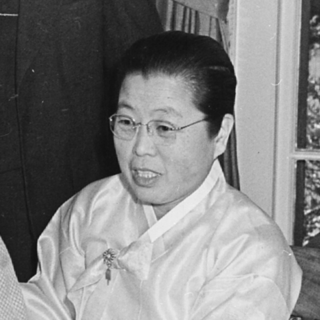 W
WHelen Kim was a South Korean politician, educator, social activist, and feminist. Her pen name was Wuwol(우월;又月). Kim is the founder of the daily Korean newspaper, The Korea Times.
 W
WStephen Edwin King is an American author of horror, supernatural fiction, suspense, crime, science-fiction, and fantasy novels. His books have sold more than 350 million copies, and many have been adapted into films, television series, miniseries, and comic books. King has published 61 novels, including seven under the pen name Richard Bachman, and five non-fiction books. He has also written approximately 200 short stories, most of which have been published in book collections.
 W
WJoseph Rudyard Kipling was an English journalist, short-story writer, poet, and novelist. He was born in India, which inspired much of his work.
 W
WNikolay Ivanovich Kostomarov was one of the most distinguished Russian Imperial historians, a Professor of Russian History at the St. Vladimir University of Kiev and later at the St. Petersburg University, an Active State Councillor of Russia, an author of many books, including his famous biography of the seventeenth century Hetman of Zaporozhian Cossacks Bohdan Khmelnytsky, the research on the Ataman of Don Cossacks Stepan Razin and his fundamental 3-volume Russian History in Biographies of its main figures.
 W
WSidney Clopton Lanier was an American musician, poet and author. He served in the Confederate States Army as a private, worked on a blockade-running ship for which he was imprisoned, taught, worked at a hotel where he gave musical performances, was a church organist, and worked as a lawyer. As a poet he sometimes, though not exclusively, used dialects. Many of his poems are written in heightened, but often archaic, American English. He became a flautist and sold poems to publications. He eventually became a professor of literature at the Johns Hopkins University in Baltimore, and is known for his adaptation of musical meter to poetry. Many schools, other structures and two lakes are named for him, and he became hailed in the South as the "poet of the Confederacy". A 1972 US postage stamp honored him as an "American poet".
 W
WClive Staples Lewis was a British writer and lay theologian. He held academic positions in English literature at both Oxford University and Cambridge University. He is best known for his works of fiction, especially The Screwtape Letters, The Chronicles of Narnia, and The Space Trilogy, and for his non-fiction Christian apologetics, such as Mere Christianity, Miracles, and The Problem of Pain.
 W
WHoward Phillips Lovecraft was an American writer of weird and horror fiction, who is known for his creation of what became the Cthulhu Mythos.
 W
WGeorge Walton Lucas Jr. is an American film director, producer, screenwriter, and entrepreneur. Lucas is best known for creating the Star Wars and Indiana Jones franchises and founding Lucasfilm, LucasArts, and Industrial Light & Magic. He served as chairman of Lucasfilm before selling it to The Walt Disney Company in 2012. Lucas is one of history's most financially successful filmmakers and has been nominated for four Academy Awards. His films are among the 100 highest-grossing movies at the North American box office, adjusted for ticket-price inflation. Lucas is considered a significant figure of the 20th-century New Hollywood movement.
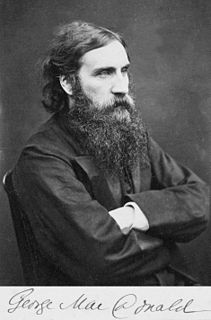 W
WGeorge MacDonald was a Scottish author, poet and Christian minister. He was a pioneering figure in the field of modern fantasy literature and the mentor of fellow writer Lewis Carroll. In addition to his fairy tales, MacDonald wrote several works of Christian theology, including several collections of sermons.
 W
WWilliam Morris was a British textile designer, poet, novelist, translator, and socialist activist associated with the British Arts and Crafts Movement. He was a major contributor to the revival of traditional British textile arts and methods of production. His literary contributions helped to establish the modern fantasy genre, while he helped win acceptance of socialism in fin de siècle Great Britain.
 W
WMurasaki Shikibu was a Japanese novelist, poet and lady-in-waiting at the Imperial court during the Heian period. She is best known as the author of The Tale of Genji, widely considered to be the world's first novel, written in Japanese between about 1000 and 1012. Murasaki Shikibu is a descriptive name; her personal name is unknown, but she may have been Fujiwara no Takako , who was mentioned in a 1007 court diary as an imperial lady-in-waiting.
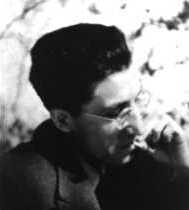 W
WCesare Pavese was an Italian novelist, poet, short story writer, translator, literary critic, and essayist
 W
WAlfred Tennyson, 1st Baron Tennyson was a British poet. He was the Poet Laureate during much of Queen Victoria's reign and remains one of the most popular British poets. In 1829, Tennyson was awarded the Chancellor's Gold Medal at Cambridge for one of his first pieces, "Timbuktu". He published his first solo collection of poems, Poems Chiefly Lyrical in 1830. "Claribel" and "Mariana", which remain some of Tennyson's most celebrated poems, were included in this volume. Although decried by some critics as overly sentimental, his verse soon proved popular and brought Tennyson to the attention of well-known writers of the day, including Samuel Taylor Coleridge. Tennyson's early poetry, with its medievalism and powerful visual imagery, was a major influence on the Pre-Raphaelite Brotherhood.
 W
WTakashi Tezuka is a Japanese video game designer, director and producer. He is a senior officer of Nintendo EPD and executive at Nintendo.
 W
WJohn Ronald Reuel Tolkien was an English writer, poet, philologist, and academic, best known as the author of the high fantasy works The Hobbit and The Lord of the Rings.
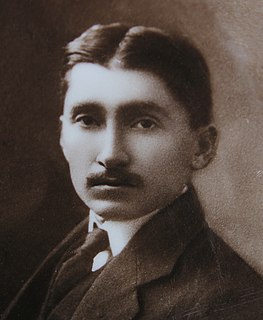 W
WUrmuz was a Romanian writer, lawyer and civil servant, who became a cult hero in Romania's avant-garde scene. His scattered work, consisting of absurdist short prose and poetry, opened a new genre in Romanian letters and humor, and captured the imagination of modernists for several generations. Urmuz's Bizarre Pages were largely independent of European modernism, even though some may have been triggered by Futurism; their valorization of nonsense verse, black comedy, nihilistic tendencies and exploration into the unconscious mind have repeatedly been cited as influential for the development of Dadaism and the Theatre of the Absurd. Individual pieces such as "The Funnel and Stamate", "Ismaïl and Turnavitu", "Algazy & Grummer" or "The Fuchsiad" are parody fragments, dealing with monstrous and shapeshifting creatures in mundane settings, and announcing techniques later taken up by Surrealism.
 W
WEvangeline Walton was the pen name of Evangeline Wilna Ensley, an American author of fantasy fiction. She remains popular in North America and Europe because of her “ability to humanize historical and mythological subjects with eloquence, humor and compassion”.
 W
WTerence Hanbury "Tim" White was an English author best known for his Arthurian novels, The Once and Future King, first published together in 1958. One of his most memorable is the first of the series, The Sword in the Stone, published as a stand-alone book in 1938.
 W
WCharles Walter Stansby Williams was a British poet, novelist, playwright, theologian, literary critic, and member of the Inklings.